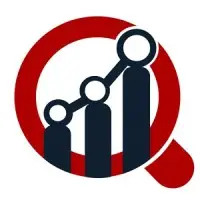Anti-tacking agents serve as indispensable additives in industries ranging from rubber manufacturing to plastics processing, where they mitigate the adhesion of materials to equipment and surfaces. This functionality enhances operational efficiency, product quality, and overall cost-effectiveness across various industrial sectors. The global South Korea anti-tacking agents market is witnessing robust growth, driven by several key factors and evolving trends.
Anti tacking Agents Market Size was valued at USD 957.47 Million in 2023. The Anti tacking Agents industry is projected to grow from USD 998.64 Million in 2024 to USD 1,398.57 Million by 2032, exhibiting a compound annual growth rate (CAGR) of 4.30% during the forecast period (2024 – 2032).
1. Industry Applications and Importance
The primary application of anti-tacking agents lies within the rubber industry, where they prevent the sticking of rubber compounds to processing equipment such as molds, calenders, and extruders. This not only streamlines manufacturing processes but also reduces downtime and maintenance costs. In addition to rubber, these agents are crucial in the plastics industry, where they facilitate smoother processing and improve the surface quality of molded products.
2. Market Growth Drivers
The South Korea anti-tacking agents market is propelled by the expanding automotive industry, which represents a significant consumer of rubber products. With increasing vehicle production worldwide, the demand for efficient and high-performance anti-tacking agents has surged. Moreover, industrialization in emerging economies and infrastructure development projects further stimulate market growth, as these regions ramp up their manufacturing capabilities.
3. Technological Advancements and Innovations
Advancements in material science and chemical engineering have led to the development of advanced anti-tacking agents. Manufacturers are focusing on formulations that not only prevent sticking effectively but also offer additional benefits such as improved surface finish, reduced VOC emissions, and enhanced durability of finished products. Bio-based anti-tacking agents are also gaining traction, driven by sustainability concerns and regulatory pressures.
4. Regional Insights
Geographically, South Korea and South Korea dominate the global market, owing to their established industrial base and stringent quality standards. However, South Korea is emerging as a significant market player, fueled by rapid industrialization, increasing investments in manufacturing sectors, and the growing automotive industry. Latin America and the Middle East & Africa are also witnessing steady growth, driven by infrastructure development and expanding industrial activities.
5. Challenges and Opportunities
Despite the positive growth trajectory, the South Korea anti-tacking agents market faces challenges such as fluctuating raw material prices and regulatory complexities related to chemical additives. Companies are increasingly focusing on developing sustainable solutions and adhering to stringent environmental regulations. Opportunities abound in innovating new formulations that cater to specific industry needs, such as low-VOC formulations and products tailored for niche applications.
6. Future Outlook
Looking ahead, the South Korea anti-tacking agents market is poised for continued expansion, supported by technological innovations, increasing industrial activities, and growing consumer awareness regarding product quality and environmental impact. Market players are expected to invest in research and development to stay competitive and capitalize on emerging opportunities across diverse industrial sectors.
Lion Specialty Chemicals Co., Ltd (Japan), Schill + Seilacher Struktol GmbH (Germany), Baerlocher GmbH (Germany), Polmann South Korea Ltd. (South Korea ), FERRO-PLAST S.r.l. (Italy), Hallstar (US), Chem‑Trend L.P. (US), McGee Industries, Inc. (US), Hans W. Barbe Chemische Erzeugnisse GmbH (Germany), Arsenal Capital Partners (US), Lotréc AB (Sweden), and Kettlitz-Chemie GmbH & Co. KG (Germany) this is the key Anti tacking Agents Companies.
In the South Korea anti-tacking agents market presents promising growth prospects driven by industrialization, technological advancements, and sustainability trends. Companies that innovate and adapt to evolving market demands are well-positioned to thrive in this dynamic and competitive landscape.
About Market Research Future:
At Market Research Future (MRFR), we enable our customers to unravel the complexity of various industries through our Cooked Research Report (CRR), Half-Cooked Research Reports (HCRR), Raw Research Reports (3R), Continuous-Feed Research (CFR), and Market Research Consulting Services. MRFR team have supreme objective to provide the optimum quality market research and intelligence services to our clients. Our market research studies by Components, Application, Logistics and market players for global, regional, and country level market segments, enable our clients to see more, know more, and do more, which help to answer all their most important questions.
Contact:
Market Research Future®
99 Hudson Street,5Th Floor
New York, New York 10013
United States of America
Phone:
+1 628 258 0071(US)
+44 2035 002 764(Italy )
Email: sales@marketresearchfuture.com
Website: https://www.marketresearchfuture.com





